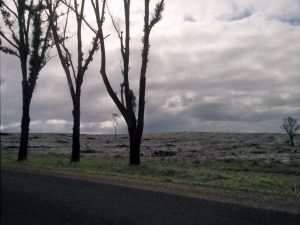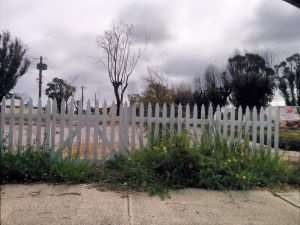
Perth is enjoying its wettest August since 1965. This could be a good thing, especially with the droughts ravaging other parts of our country, our dams certainly need filling up – though it’s unlikely we will see the Mundaring Dam overflowing anytime soon, however there are other issues at stake.
The winter rains have created lush vegetation and lots of it. Our countryside is verdant with record breaking grain harvests forecast and wildflowers creating colourful carpets, but as the rains stop and the days warm up, the vegetation will eventually start to go brown and die which creates enormous fuel loads.
The upshot of excessive undergrowth and high fuel loads is twofold:
One solution to both of these potential problems is controlled burning.
While August has been the wettest we have experienced in over 50 years, we get marginally less rain per year on average. To get water flowing into our dams we need steady, regular rain in order to soak the catchments, however the run off in a good year now is a quarter of the post 1975 average. And that is a direct result of the amount of vegetation available, and why controlled burns are vitally important for not just run off, but to help prevent bush fires.
The aim of a controlled burn off is to reduce the fuel load, so that large scale bush fires cannot take hold.
The number of prescribed controlled burns is strictly regulated to ensure diversity in our landscapes is maintained. These low intensity fires are designed to burn dead fuels below six millimetres in diameter, medium to high intensity fires (bush fires) will burn young trees, thick twigs and branches, bark and deep litter*. In a bid to contain large scale bush fires both back burning (lighting a low heat fire ahead of the fire front to remove fuel and stop the fire) and land clearing may be adopted in a bid to stop the fire front. As you can imagine this also has a major impact on the countryside.
Without vegetation to hold the soils in place, mobilization of material in the form of sediment is inevitable which can have a major impact on water quality.


The road to Yarloop
Dust, debris, minerals and chemicals held in the soil easily become airborne, but as rains fall again, these materials are flushed into our waterways causing turbidity.
Turbidity is defined as cloudy or hazy water looks from above. The more particles in the water, the cloudier it becomes.
The water can be treated and made safe for consumption and use, but the process can be costly.
So what can we do to help minimise the impact of bush fires on our communities and water ways?
However, there is a new movement that seems to be taking off called Plogging which is a combination of jogging and picking up litter. While it started as an organised activity in Sweden in 2016, the activity soon spread to other regions and countries, and there are now plogging groups in Australia. Finally,
Allied Pumps can supply a range of clear water systems, package fire pump sets and fire water storage tanks. Please contact us today to discuss your needs and get ahead of bushfire season.
Bushfires: Is Fuel Reduction Burning
the Answer:

Contact us to learn about how we can help you with your pump needs.
CALL US NOW EMAIL US